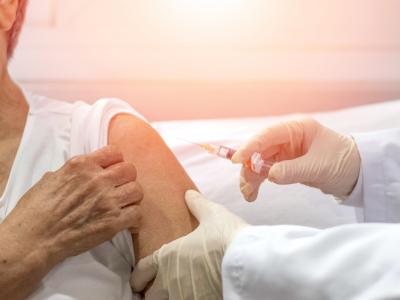Stool softener tied to 47 Burkholderia cepacia infections in 5 states
The Centers for Disease Control and Prevention (CDC) is recommending clinicians and all patient populations stop using the liquid stool softener docusate after the medicine has been implicated in an ongoing, healthcare-related Burkholderia cepacia complex (B cepacia) outbreak.
To date, 47 infections in five states have been linked to two strains of B cepacia foundin liquid ducosate. B cepacia complex can cause severe lung infections, including pneumonia, and even death. Patients who are immunocompromised or have chronic lung illnesses are particularly at risk.
"CDC has confirmed one product as having B cepacia complex growth; however, because of epidemiologic links, CDC is concerned about potential contamination of multiple liquid docusate products," the CDC said in an outbreak and patient notification posted on their website on Jul 8.
The CDC first reported the outbreak on Jun 24. The initial cases were found in ventilated patients who did not have cystic fibrosis and were treated on intensive care units. At the time, the CDC recommended against using liquid ducosate in "patients who are critically ill, ventilated, or immunosuppressed."
Liquid ducosate is commonly given by clinicians to treat constipation. B cepacia complex is highly transmissible and often spreads quickly in healthcare facilities.
Jul 8 CDC update
PAHO notes 903 new chikungunya cases
The Pan American Health Organization (PAHO) reported only 903 new chikungunya cases late last week, a week after reporting more than 43,000 cases. The new cases bring the total in the Americas this year to 194,149 infections.
The agency reported 950 and 43,842 new cases, respectively, in the previous two updates. Last week's update, dated Jul 8, includes 34,172 confirmed cases of locally transmitted disease and 147 imported cases, with the rest (159,830) being suspected locally transmitted infections.
Colombia reported the most new cases, with 332, bringing its 2016 total to 17,267 cases. Guatemala was next with 108 new cases and 2,121 total. Mexico, Costa Rica, El Salvador, Nicaragua, and Argentina reported smaller increases.
PAHO noted no new chikungunya-related deaths, leaving that number at 18 for the year, 16 of which have been in Brazil.
The outbreak began in December 2013 on St. Martin in the Caribbean with the first recorded cases of the disease in the Americas. Since then PAHO has reported 2,074,115 suspected or confirmed cases, including 286 deaths.
Jul 8 PAHO report









